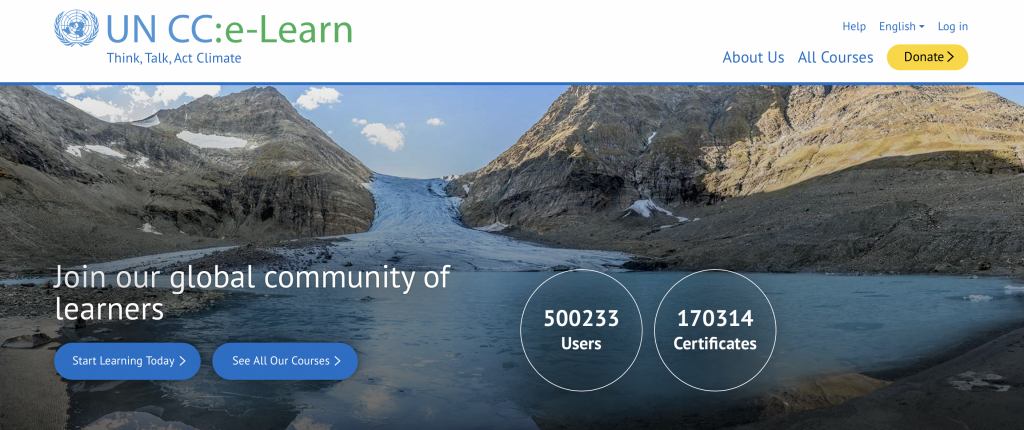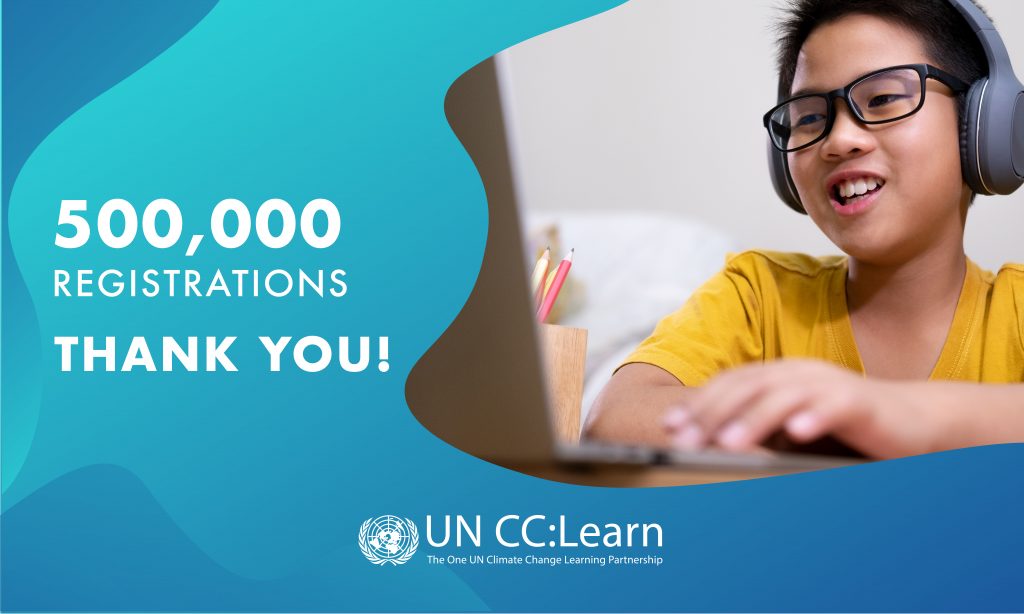On 31 January 2022, UN CC:Learn reached the important milestone of 500,000 registrations on its e-learning platform. This achievement came against the backdrop of increased debate about and awareness of climate change worldwide, which consolidates the importance of UN CC:Learn in promoting climate change education and the role it plays in providing up-to-date and accessible online courses on climate change and green economy.
Over the past years, the programme has diversified its portfolio and started to offer a variety of different courses on climate change and green economy, such as the “Climate Change, Peace and Security”, the new “Introduction to Sustainable Finance” and the latest “Gender Equality and Human Rights in Climate Action and Renewable Energy” e-courses, unraveling complex topics and delivering informative, interactive and pertinent e-learning resources that cater to different audiences, spanning technical experts, policymakers, academia, and the general public. The relevance and diversity of the content proposed, which builds on the most up-to-date knowledge of the United Nations, combined with an engaging user experience, are key to the success of the e-courses offered by UN CC:Learn. This is reflected by the high conversion rate of the platform: almost one person out of three ends up completing a course and getting a certificate.

Multilingualism, tailoring and accessibility are cornerstones of UN CC:Learn work. The e-learning platform follows the Web Content Accessibility Guidelines (Level AA) and is currently available in 6 languages. Users who register to it have an array of different courses to choose from, many of which being offered in two or more languages. Currently, there are 16 languages represented in the platform and this enhances the users’ experience by allowing them to complete the courses in their native language. The “Mastering NAPs: from Start to Finish”, for instance, can be done in English and French. The flagship “Climate Change: From Learning to Action” e-course, is currently available in English, Spanish, French and Russian, with a translation into Chinese under way. In addition, it offers region-specific content, for instance through the “Sustainable Consumption and Production in Africa” course, which can be accessed in English and French.
Moving forward, UN CC:Learn will keep increasing and improving its course catalogue while exploring other ways of promoting climate literacy and making its e-learning platform even more accessible. On top of the courses already in the making and forecast to be launched later this year, the programme is also planning to tap on “micro-learning”, a totally new way of putting together content and experiences. Stay tuned!

